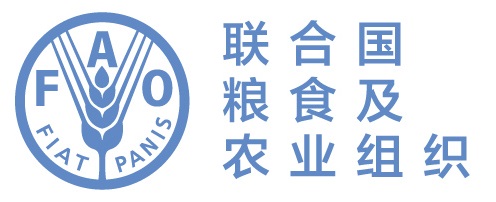
IPPC Webinar Series: Climate Change and Phytosanitary Issues | 1-2 October 2025 | 14:00–16:00 CET (Rome time)
Register here
Climate change is transforming the global plant health landscape, altering pest behavior, disrupting surveillance systems and challenging our pest risk frameworks.
The IPPC Secretariat and the Commission on Phytosanitary Measures (CPM) Focus Group on Climate Change and Phytosanitary Issues (FG‑CCPI) have organized this two-part webinar series to explore the relationship between climate change and phytosanitary action. From modeling pest risks to deploying biocontrol strategies, this webinar series will spotlight practical tools, case studies and innovation to address the uncertainty of climate change impacts on plant health and the environment. It will bring together global phytosanitary experts, national authorities and scientists.
Objectives
- Share practical experiences and technical perspectives on the role of climate change in pest risk analysis and surveillance.
- Explore tools and frameworks for pest management, including biocontrol and IPM, with climate adaptation and mitigation potential.
- Facilitate global discussion among NPPOs, researchers, and technical experts.
Why you should join
- Stay ahead of emerging phytosanitary risks exacerbated by climate change
- Learn from leading experts at EFSA, Fundecitrus, University of California- Davis, FAO, CABI and more
- Discover how national plant protection organizations (NPPOs) are adopting tools for enhanced surveillance, pest risk analysis (PRA), integrated pest management and biocontrol
- Connect with a global network of plant health and climate change specialists
Who should attend
- National and regional plant protection organizations (NPPOs and RPPOs)
- Researchers, academics and students
- Climate and agricultural development experts
- FAO, IPPC and One Health partners
- Stakeholders in agriculture, trade and forestry
Webinar 1: Pest risk analysis and surveillance in a changing climate
1 October 2025, 14:00–16:00 CET
Explore how climate data and modeling are reshaping pest risk assessment and early warning systems
Highlights include:
- Climate-informed PRA: frameworks and tools
- Case studies from EFSA and Italy
- Field experiences dealing with citrus greening and Xylella fastidiosa
Speakers:
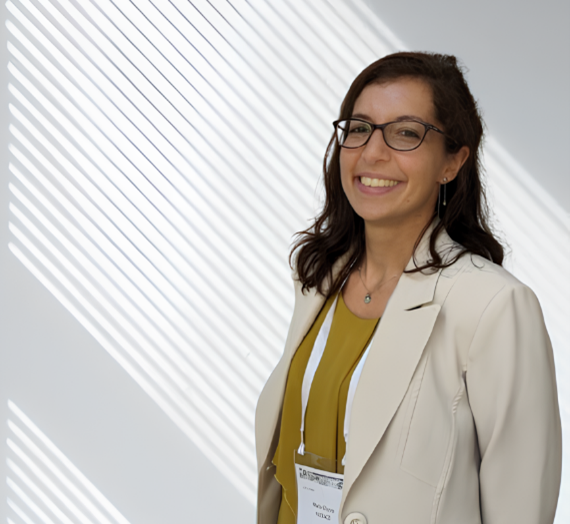 | Maria Chiara Rosace has a PhD in Agro-Food Systems and has a solid academic and professional background in plant health. She is currently an Individual Scientific Advisor for the plant health monitoring team at the European Food Safety Authority (EFSA). Before this role, she worked as a Research Fellow at Università Cattolica del Sacro Cuore, contributing to the “Hotspots for Plant Pests Introduction” project. Her experience includes research at HortaSrl on grapevine trunk diseases and roles at EFSA, from trainee to consultant, focusing on commodity risk assessment of high-risk plants, priority pests, and surveillance. Earlier in her career, she worked in the UK as a research assistant on soil health and arthropods. She is deeply passionate about science communication. |
 | Andrea Maiorano holds a PhD in Agricultural Sciences and has dedicated 15 years to research, focusing on pest and disease modelling, crop modelling, model improvement, climate change impact analysis, and crop yield forecasting. In 2018, he joined the European Food Safety Authority (EFSA) as a Scientific Officer in the Plant Health Risk Assessment Team. In this role, he coordinates activities related to systematic literature searches, data extraction, bibliometric analyses, global pest distribution, climate suitability assessments, and geospatial data analysis and mapping. He also contributes to the development of innovative tools, including climate-suitability modelling and geospatial risk assessment frameworks. |
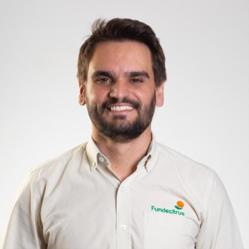 | Arthur Tomaseto graduated in Agricultural Engineering from the Luiz de Queiroz College of Agriculture at the University of São Paulo in Brazil. He earned his Master’s and Ph.D. degrees in Entomology at the Department of Entomology and Acarology of the same university. He conducted research related to the transmission of bacteria associated with citrus Huanglongbing by the psyllid Diaphorina citri and carried out studies on the insect’s dispersal and migration, as well as the effects of climatic and plant factors on these processes. He completed his postdoctoral studies at the Fund for Citrus Protection (Fundecitrus), developing alternative control strategies for the psyllid, such as processed kaolin and trap plants. He is currently an agronomist at the Department of Technology Transfer of Fundecitrus, working in the eastern region of the state of São Paulo. |
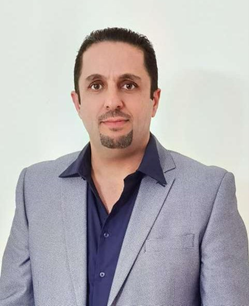 | Raied Abou Kubaa is a Project Scientist at the University of California,Davis, Foundation Plant Services, in the United States of America, specializing in plant virology and molecular diagnostics. He develops and validates high-throughput assays (RT-qPCR, multiplex qPCR, HiPlex amplicon sequencing) to support clean-plant certification and decision-making by national plant protection organizations. He has led field surveys and outbreak investigations in California and the Mediterranean, including ToBRFV, Xylella fastidiosa, grapevine and honeybees viruses, with an emphasis on climate-aware sampling and risk-based surveillance.? His current work optimizes tissue matrices for strawberry and sweetpotato diagnostics and builds multi-target assays for Rubus/Vaccinium and grapevine viruses. He collaborates with CDFA, USDA-APHIS, and NCPN partners.? Raied has a Ph.D. in Plant Pathology from the University of Bari, Italy and has authored 120+ works, including five articles in 2025. |
 | Riten C. Gosai
is the Coordinator for the Pacific Plant Protection Organisation (PPPO) at the Pacific Community (SPC) Land Resources Division (LRD), and based at Suva, Fiji. He is a budding plant pathologist, having gained his Master of Science in Tropical Plant Pathology from the University of Hawaii at Manoa (UHM) in 2016. Earlier on, he attained his Bachelor of Agriculture degree from the University of the South Pacific (USP) in 2010. Before joining SPC, he was employed at the Biosecurity Authority of Fiji (BAF) for over 10 years in various roles climbing to the rank of the Senior Plant Protection Officer. As a biosecurity professional, he has extensive experience in operational, technical and policy level biosecurity work spanning border control work, import-export inspection, non-compliance risk mitigation, surveillance and audits. Also experienced in pest risk assessments, biosecurity related research, communication and awareness, and drafting of policies, standard operating procedures, manuals and guidelines. He possesses technical knowledge and field experience in establishing early warning systems, conducting pest outbreak investigations and undertaking emergency response work. He has coordinated and managed several biosecurity projects as well as worked with various stakeholder groups including international agencies. |
 | Bill Gain is the Global Lead for Trade Facilitation and Border Management at the World Bank, coordinating reform in over 40 countries. He has over 40 years’ experience in management and leadership roles, focusing on on border agency reform and modernization, trade facilitation, border management and private sector development in developing and conflict affected countries. Prior to joining the World Bank Group, he was Associate Director and Manager for New Zealand and the Pacific at the Centre for Customs and Excise Studies at the University of Canberra, Australia and worked at the New Zealand Customs for 30 years. Bill has a Masters Degree in Public Policy from the Victoria University of Wellington, New Zealand and a Post Graduate Diploma in Business (Human Resourcesand Change Management), from the University of Auckland, New Zealand. |
Webinar 2: Pest management and biocontrol under climate change
2 October 2025, 14:00–16:00 CET
Dive into climate-resilient pest management approaches, biocontrol innovations, and regional frameworks
Highlights include:
- Climate-smart Integrated Pest Management (IPM) in beans and legumes
- Biocontrol regulation across regions
- Mainstreaming biocontrol in national strategies
Speakers:
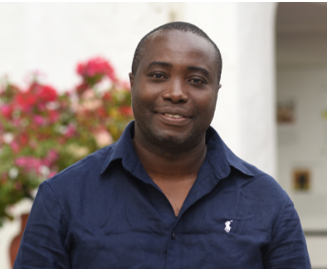 | Warren Arinaitwe is a crop protection scientist with 19 years of practical experience in agricultural research, development, and rural extension across East and Central Africa and Southeast Asia. He earned his PhD in Plant Sciences from the University of Cambridge in 2021. Before that, Warren spent six years with the International Center for Tropical Agriculture (CIAT) in Uganda, where he played a key technical role in bean pathology across multiple regional projects. After completing his PhD, he joined the Cassava Program of the Alliance Bioversity &CIAT (ABC) in Southeast Asia, based in Laos, focusing on the epidemiology of high-burden pathogens and building resilient cassava systems in the face of climate-driven pest and disease outbreaks. In 2024, Warren returned to the Bean Program/ Pan-Africa Bean Research Alliance (PABRA), a program of ABC, as a scientist, where he leads crop resilience efforts across PABRA countries. He also leads the BRAINS (Building Equitable Climate-Resilient African Bean & INsect Sectors) project, which is integrating beneficial insects in bean value chains across 15 African countries (BRAINS Project | Alliance Bioversity International - CIAT). He is based in Nairobi, Kenya. |
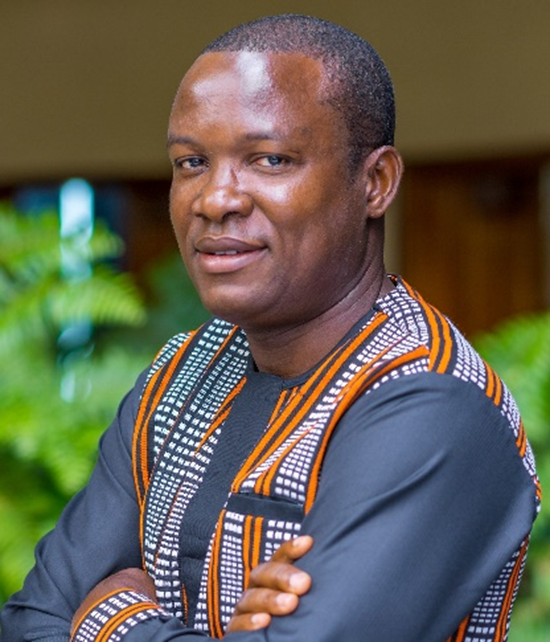 | Lakpo Koku B. A. Agboyi is a Senior Scientist in Invasive Species Management at the Center for Agriculture and Bioscience International (CABI) in Ghana, with over 15 years of experience in crop protection and sustainable pest management. His expertise spans biological control of agricultural pests, insect ecology, and insecticide resistance management. He leads research and development initiatives across West Africa to predict, prevent, and manage invasive species, supporting NPPOs, universities and research institutes in developing national priority pest lists, contingency plans, and surveillance systems. In Ghana, he coordinated the development of regulatory guidelines for biopesticides and biological control agents, as well as the National Invasive Species Strategy and Action Plan. Agboyi has published over 40 peer-reviewed papers and supervised more than 10 MPhil and PhD students. |
 | Kris A.G. Wyckhuys is a Belgian bio-science engineer and entomologist, with a PhD from Purdue University, USA.. He is a a consultant at FAO's Plant Production and Protection (NSP) Division and the FAO Regional Office for Asia and the Pacific (RAP), a Guest Professor at the Chinese Academy of Agricultural Sciences CAAS in CHina and Honorary Associate Professor at University of Queensland, Australia. Kris seeks to promote biological control through integrated pest management (IPM) and to advance biodiversity-friendly agriculture. Over the past 25 years, he has gainedhands-on expertise in cropping systems in Central America, the Andes, the US Midwest, China and Southeast Asia. From 2013-2017, Kris spearheaded an FAO-CGIAR-Thailand collaborative initiative to mitigate the invasive cassava mealybug in Southeast Asia – an endeavor which greatly reduced pesticide use on a major broad-acre crop, enhanced yields by 5-10 tonnes/hectare and which now yields at least USD 3 billion per year in enhanced profits for Asia’s cassava industry. |
 | Peter Donelan joined the Standards and Trade Development and Facilitation (STDF) team at the World Trade Organization (WTO) in 2025 as Acting Deputy Head, leading Monitoring, Evaluation and Learning (MEL). He has over 18 years of experience in trade and private sector development, managing multi-million-dollar Aid for Trade projects across sub-Saharan Africa, Asia and the Pacific. His expertise includes results-based management, sustainable agri-business, cross-border trade, market systems development, the nexus of trade and climate change and inclusivity. Peter previously coordinated Sub-Saharan Africa and the Pacific country programmes and regional initiatives for the Enhanced Integrated Framework (EIF) at the WTO. He also coordinated the Swiss SECO funded UN Trade Cluster programme in Tanzania with UNCTAD and held trade and private sector development specialist roles with UNDP in Tanzania and Sierra Leone where he worked for over 10 years. He has an MA in International Relations from Dublin City University. |
Webinar materials
- Agenda
- Presentations and recordings will be uploaded after the event
Webcast links
- Webinar 1 – 1 Oct 2025, 14:00–16:00 CEST: https://www.fao.org/webcast/home/en/item/7253/icode/
- Webinar 2 – 2 Oct 2025, 14:00–16:00 CEST: https://www.fao.org/webcast/home/en/item/7254/icode/
